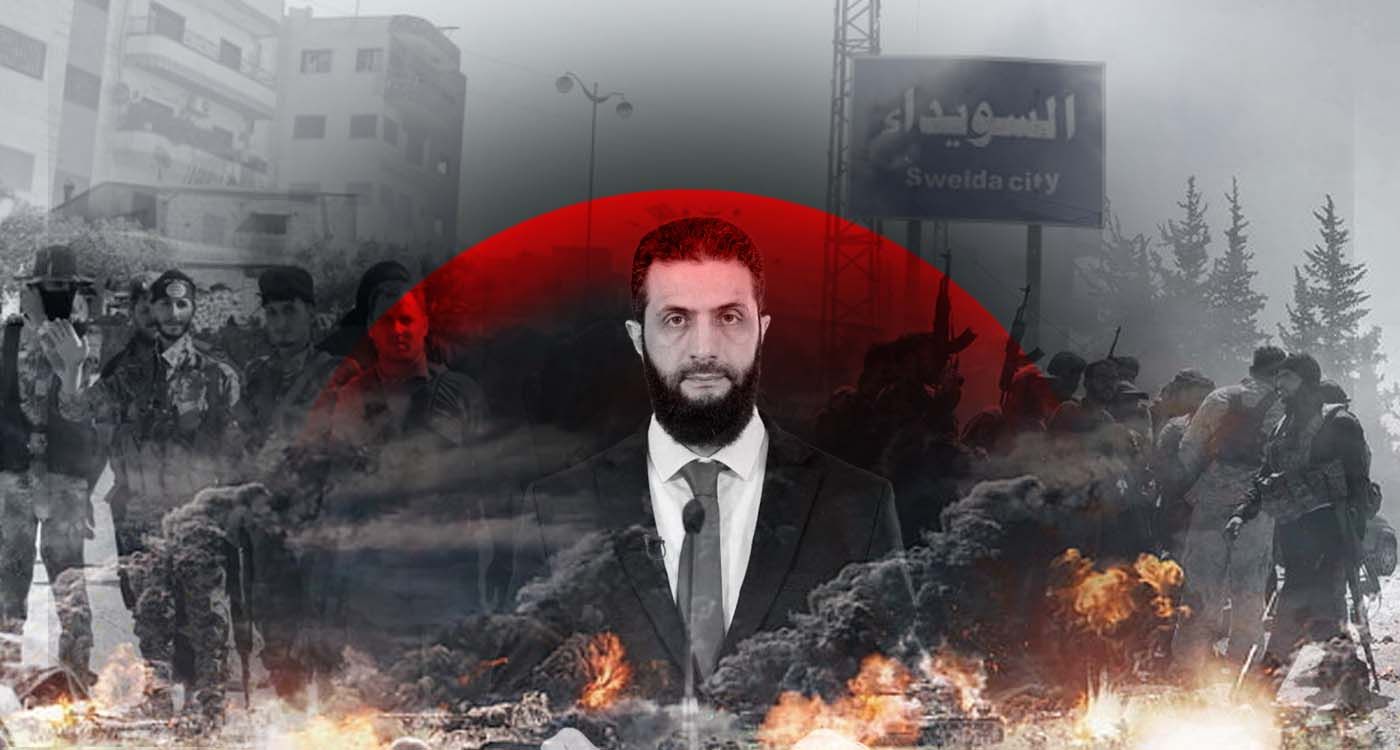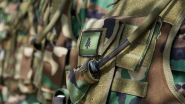
For two days, the Israeli Army has bombed Syrian militias now acting as auxiliaries to the regular army. On Wednesday, Israeli jets struck the outskirts of Syria’s military headquarters in Damascus—a clear political and military message: ongoing attacks on Syria’s Druze minority will not be tolerated.
Yet on the ground, confusion reigns. The identity of the attackers remains unclear. Are they soldiers? Former Islamist militants who helped bring Ahmad al-Sharaa, also known as al-Jolani, to power? Or even Bedouin fighters? What is certain is that armed groups have surged into Sweida, the largest Druze city, spreading terror.
This ambiguity conveniently obscures responsibility, a hallmark of Syria’s new regime.
The pattern is familiar: attacks on minorities, followed by official condemnations and calls for national unity. This persistent contradiction mirrors the paradox of Syria’s new strongman. Once a feared jihadist commander, now a suited president shaking hands with Western diplomats (though never women—old habits die hard), al-Sharaa’s transformation strains credulity.
From al-Nusra Front’s fiery preacher to nationalist politician, his dramatic makeover invites skepticism.
Is Syria truly ruled by a repentant leader or is this just a strategic rebranding concealing old loyalties? Recent events cast doubt, suggesting the latter.
For nearly a decade, al-Jolani was one of Syria’s most feared warlords. Former al-Qaeda operative and founder of al-Nusra Front in 2012, he waged brutal war on Assad’s regime. In 2016, he severed ties with al-Qaeda, rebranded his group first as Fatah al-Sham, then Tahrir al-Sham, and adopted a more pragmatic, locally focused, and less globally jihadist rhetoric—giving rise to politician Ahmad al-Sharaa: savvy, manipulative, open to dialogue with regional actors, particularly Turkey and Qatar. Some say he is secretly backed by intelligence agencies; others point to regime defectors within Syria’s security apparatus.
Since Bashar al-Assad’s flight, al-Sharaa has presented himself as a figure of compromise for Syria’s political transition. He promises stability, guarantees the country’s unity, and vows to turn the page on armed Salafism. Yet the fog only thickens.
This spring, unidentified armed groups attacked Alawite and Christian towns and villages along Syria’s coast. Witnesses reported massacres, guerrilla tactics, sophisticated military coordination, and commanders linked to the former al-Nusra Front. Although the government officially condemned the attacks, no arrests were made, no investigations launched, and no one claimed responsibility.
Now, similar assaults plague the Druze southwest, with links again tracing back to al-Sharaa’s networks, even those close to the presidential circle.
Analysts see a deliberate strategy: pressure minorities to politically weaken them, force territorial concessions, or execute a slow sectarian cleansing hidden beneath military chaos. Some believe al-Sharaa is sincere but no longer controls the militias loyal to him or the situation.
In Lebanon, all of this is viewed with the caution of those who have already endured the Assad family’s iron grip, with its trail of destruction, assassinations, lies, and corruption. With 2.5 million Syrians now on Lebanese soil, the threat of political and military infiltration is acute. Well-organized communal networks have emerged in the North, the Beqaa, and parts of Beirut. Due to the persistent negligence of successive Lebanese governments, no one truly knows their numbers—or the extent of the weapons stockpiled in some of the “displaced” camps.
Is a fifth column waiting to be triggered? Some reports say yes.
This situation is a godsend for Hezbollah, eager to find excuses to avoid disarming. The pro-Iranian militia is spinning a narrative about the “need” to keep its arsenal to “defend minorities and Lebanon” against new ISIS battalions. This story is as hollow as the long-discredited myth of “resistance against Israel.” It is a path just as perilous for a Lebanon exhausted by dogmatic illusions. The Lebanese Army stands ready to protect the country. Hezbollah must hand over its weapons to the state, or risk fueling the fantasies in Damascus of resurrecting Bilad al-Sham.
In the Levant, history doesn’t repeat, it deceives.
As Tacitus said: “The face of power changes, but its claws remain the same.”




Comments